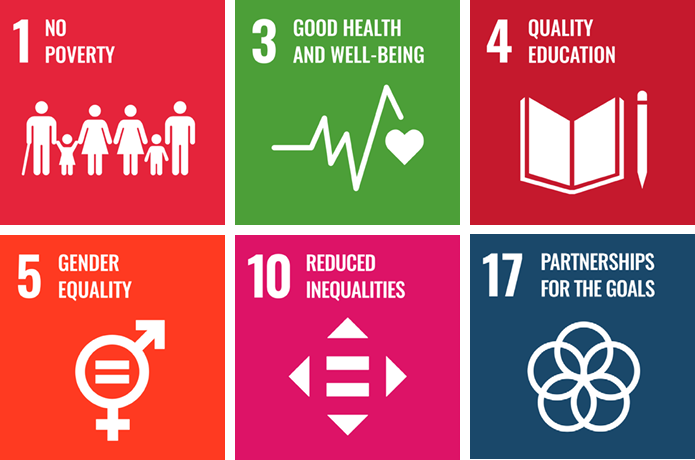
Resilient society theme area
What is a resilient society like?
A resilient society in the area of health and social care is characterised by its ability to effectively adapt, respond, and recover from various challenges and disruptions while maintaining the well-being of its population. This resilience extends beyond individual health to encompass the entire health and social care systems, public health infrastructure, and the community's capacity to withstand and bounce back from health-related and social crises.
TAMK is a significant social and health care educator, which enables us to identify and react to changes in society with agility.
Focus areas of our RDIC activities
- Prevention and nursing of non-communicable diseases: We invest in the prevention of key somatic and mental illnesses in Finland, as well as in the development of methods of treatment and competence.
- Well-being of families: We comprehensively strengthen the well-being and inclusion of families at different stages of life. We understand the family broadly, including children, young people, people of working age and the elderly.
- Ethics of a resilient society: We develop ethical competence and identify ethical issues. At the same time, we promote social equality.
- Well-being at work: We promote physical, mental and social well-being at work, as well as leadership and work counselling that support well-being at work.
- Comprehensive well-being and inclusion of individuals in a sustainable society: We take into account the themes related to human quality of life and well-being, so that everyone has the opportunity to participate in social activities, influence their own lives and be an active member of society. These factors support community success and sustainable development.
- Personalised health and health promotion: Our focus is on personalised health promotion broadly, including genomics, artificial intelligence and data. In addition, we are interested in the issues related to the ethics of individual health promotion.
Applied research infrastructure
Virtual Lab for Social and Health Care
The Virtual Lab for Social and Health Care offers opportunities to explore, develop and test through solutions from various technology companies. The lab can be used for service design, testing health and social services technologies and various experiments.
Read more about Virtual Lab for Social and Health Care
Tampere Centre for Skills Training and Simulation (Taitokeskus)
Taitokeskus is a joint training centre for the Tampere universities community and the Wellbeing Services County of Pirkanmaa. In the centre, students and professionals in the field of health can practice their practice skills. Reality-matching simulation facilities mimic the correct operation of a ward, emergency room, intensive care unit, operating room, or delivery room.

Key projects
GenoNurse (2022–2025)
The project's main objective is to create a genomic data training and competence model for nursing education. The training in genomics supports high-quality nursing in this new and sensitive area.
SexEd (2022–2024)
The main objective of the project is to strengthen young people's ability to assess, strengthen and protect their sexual and reproductive health based on correct information in South Africa and Finland.
Sustainable Brain Health (2020–2023)
The aim of the project was to familiarise with the brain load of working life and to develop tools to promote the brain health and well-being of employees and the effectiveness of organisations.
SmartNurse (2020–2023)
The project developed a model for the use of digital and active methods in nursing education in Mexico and El Salvador.
4Steps (2019–2023)
The 4Steps for Healthy Babies, Healthy Families, Healthy Nations project developed midwifery in Vietnam and Cambodia. The project resulted in simulation environments and materials in local languages.
DigiCare (2019–2023)
The project created a model to support the development of nursing education, self-care guidance and digital guidance for patients with non-communicable diseases in Bangladesh and Vietnam.
The impact of our projects
Partners and networks
- Global Genomics Nursing Alliance
- Finnish Diabetes Association
- Nursing Research Foundation
- Tampere University
- University of Eastern Finland
- The Wellbeing Services County of Pirkanmaa
- The Council of Tampere Region
- Business Tampere
- SosPro
- Setlementti Tampere
- Finnish Institute for Health and Welfare
- Various universities of applied sciences in Finland
Publications
Sustainable Development Goals
In particular, we promote the following UN Sustainable Development Goals:

- Goal 1: End poverty in all its forms everywhere
- Goal 3: Ensure healthy lives and promote well-being for all at all ages
- Goal 4: Ensure inclusive and equitable quality education and promote lifelong learning opportunities for all
- Goal 5: Achieve gender equality and empower all women and girls
- Goal 10: Reduce inequality within and among countries
- Goal 17: Strengthen the means of implementation and revitalize the Global Partnership for Sustainable Development





